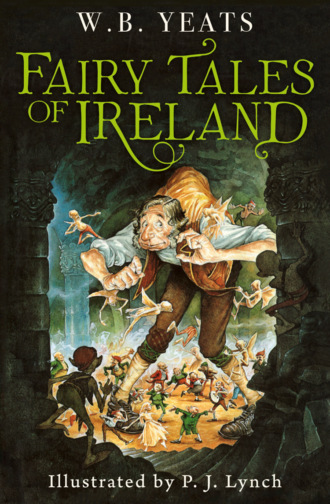
Полная версия
Fairy Tales of Ireland

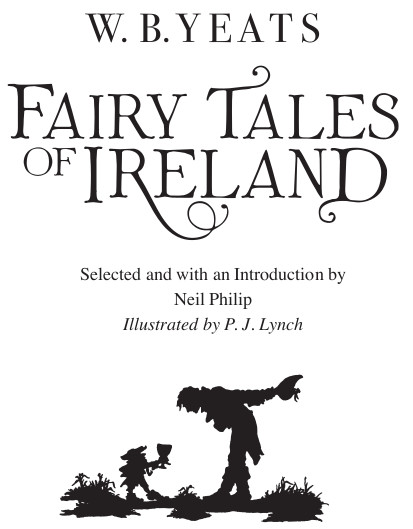

First published in Great Britain by HarperCollins Publishers Ltd. in 1990
This edition published in Great Britain by HarperCollins Children’s Books in 2019
Published in this ebook edition in 2019
HarperCollins Children’s Books is a division of HarperCollinsPublishers Ltd,
HarperCollins Publishers
1 London Bridge Street
London SE1 9GF
The HarperCollins website address is
www.harpercollins.co.uk
This selection and layout copyright © HarperCollinsPublishers Ltd. 2019
Introduction and Notes copyright © Neil Philip 1990
Illustrations copyright © Patrick James Lynch 1990
All rights reserved.
Cover design © HarperCollinsPublishers Ltd 2019
Patrick James Lynch and Neil Philip assert the moral rights to be identified as the illustrator of the work and the author of the introduction and notes respectively.
A catalogue record for this book is available from the British Library.
All rights reserved under International and Pan-American Copyright Conventions. By payment of the required fees, you have been granted the non-exclusive, non-transferable right to access and read the text of this ebook onscreen. No part of this text may be reproduced, transmitted, downloaded, decompiled, reverse engineered, or stored in or introduced into any information storage and retrieval system, in any form or by any means, whether electronic or mechanical, now known or hereinafter invented, without the express written permission of HarperCollins.
Source ISBN: 9780008253042
Ebook Edition © November 2018 ISBN: 9780008190095
Version: 2018-11-27
For Roisín
NP
For Katrina
PJL
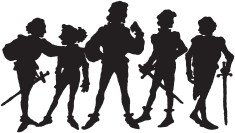
Contents
Cover
Title Page
Copyright
Dedication
Introduction
1. The Stolen Child
2. The Priest’s Supper
3. The Legend of Knockgrafton
4. A Donegal Fairy
5. Jamie Freel and the Young Lady
6. A Legend of Knockmany
7. The Twelve Wild Geese
8. The Lazy Beauty and her Aunts
9. The Haughty Princess
10. Far Darrig in Donegal
11. Donald and his Neighbours
12. Master and Man
13. The Witches’ Excursion
14. The Man Who Never Knew Fear
15. The Horned Women
16. Daniel O’Rourke
17. The Soul Cages
18. The Giant’s Stairs
19. The Enchantment of Earl Gerald
20. The Story of the Little Bird
Notes on the Stories
Footnotes
About the Publisher
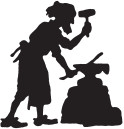
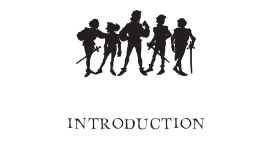
The Irish are a nation of talkers, and over the years their talk has run richly and naturally into story. Folk and fairy tales of all kinds abound, from long sagas of legendary heroes to personal accounts of dealings with the fairies, from wonder tales full of magic and transformation to comic anecdotes about local characters, from legends of saints or popular history to shivering ghost stories.
The Irish fairy tales in this book are chosen from two volumes edited by the Irish poet William Butler Yeats when he was a young man: Fairy and Folk Tales of the Irish Peasantry (1888) and Irish Fairy Tales (1892). They offer examples of various kinds of story, and various ways of writing down stories which were meant to be heard, not read. But most of all they concentrate on the fairies themselves, creatures which fascinated Yeats, who all his life was entranced by the otherworld. He yearned to know more about these “Nations of gay creatures, having no souls; nothing in their bright bodies but a mouthful of sweet air.”
On the fourteenth of October, 1892, he was rewarded with a strange experience, which he described in his book The Celtic Twilight. Here is his account from a letter written the very next day:
I went to a great fairy locality – a cave by the Rosses sands – with an uncle & a cousin who is believed by the neighbours & herself to have narrowly escaped capture by that dim kingdom once. I made a magical circle & invoked the fairies. My uncle – a hard headed man of about 47 – heard presently voices like those of boys shouting & distant music but saw nothing. My cousin however saw a bright light & multitudes of little forms clad in crimson as well as hearing the music & then the far voices. Once there was a great sound as of little people cheering & stamping with their feet away in the heart of the rock. The queen of the troop came then – I could see her – & held a long conversation with us & finally wrote in the sand “be careful & do not seek to know too much about us”.
Others have received much the same warning. Old Biddy Hart told Yeats much about the fairies, but for long she turned his questions aside with, “I always mind my own affairs, and they always mind theirs.” Another informant, “Paddy Flynn, a little bright-eyed old man, who lived in a leaky and one-roomed cabin in the village of Ballisodare” answered Yeats’s query as to whether he had ever seen the fairies with the long-suffering, “Am I not annoyed with them?” Yet another, an old Galway countryman renowned as a seer and healer whom Yeats calls Kirwan, told him, “I see them in all places, and there’s no man mowing a meadow that doesn’t see them at some time or other.” Yeats’s home district in County Sligo was full of such beliefs.
Yeats was born in Dublin in 1865, and died in 1939. He won the Nobel Prize for Literature in 1923, and he was the central figure of the Irish literary revival in the early years of the twentieth century. Much of that revival, including the work of Yeats and his close friends Lady Augusta Gregory and John Millington Synge, drew its strength from the rediscovery of traditional story and traditional speech. Yeats’s two collections of Irish fairy tales stand at the head of this rediscovery. Indeed he said of Fairy and Folk Tales that, “It was meant for Irish poets. They should draw on it for plots and atmosphere.” He showed he meant what he said in a generous letter to the poet Nora Hopper, who had been accused of stealing from him: “It has given me great pleasure to find by stray words & sentences that my own little collections of Irish folk lore have been of use to you.”
His own interest in folk traditions was aroused as a young child in visits to his cousin George Middleton at Rosses, County Sligo: “It was through the Middletons perhaps that I got my interest in country stories, and certainly the first faery-stories that I heard were in cottages about their houses.” His mother and her servant, a fisherman’s wife, were good storytellers, too, and in The Celtic Twilight, his book of about fairy lore, Yeats published an account of one of their story sessions.
By his early twenties, the poet was already “searching for people to tell me fairy stories” and noting them down. So the commission from Ernest Rhys (later editor of the “Everyman” series for J.M. Dent) to compile for the Camelot Series a representative collection of Irish fairy stories was a wonderful opportunity for the young man to explore the published and unpublished treasure trove of Irish story. In a few months of furious work, spurred on equally by enthusiasm for his task and the thought of the seven guineas it would earn him, Yeats ransacked all the available books and journals, and added new material of his own and from the collection of his friend Douglas Hyde.
Douglas Hyde, later the first President of the Republic of Ireland, was immensely helpful to Yeats, who in turn wrote of him, “Hyde is the best of all the Irish folklorists – His style is perfect – so sincere and simple – so little literary.” The truth of this was proved in 1890 with the publication, through Yeats’s intervention, of Hyde’s marvellous collection of stories Beside The Fire. Later, Hyde was to encourage the work of the Irish Folklore Commission (now the Department of Irish Folklore, University College, Dublin) under the direction of his old assistant James Delargy, which sent collectors to every corner of Ireland in search of stories and traditions, with the result that its archives are now the envy of the world. Its archivist, Sean O’Sullivan, has published two representative collections, Folktales of Ireland (1966) and Legends from Ireland (1977). These, together with Henry Glassie’s Irish Folk Tales (1985), give a fair sample of the riches now available to anyone interested in Irish folklore.
But in 1888 when Yeats compiled his Folk and Fairy Tales, while there was still a vibrant storytelling tradition in Ireland, very little of it had been written down, and what there was was often spoilt by the writers, who ignored what Lady Gregory called “the beautiful rhythmic sentences” of the original tellers and put the stories, rued Yeats, into “newspaper English” on the one hand or “ramshackle towrow dialect” on the other. So Yeats had to search hard to find stories from early collectors such as Thomas Crofton Croker, Patrick Kennedy and Letitia McClintock suitable for his book. In his long, favourable review, Oscar Wilde commented particularly on Yeats’s “quick instinct in finding out the best and most beautiful things in Irish folk-lore.” Wilde’s own father and mother had been pioneer collectors (one of their stories was “The Horned Women”, p. 119), so his good opinion was cheering. Criticisms by other reviewers of the unscientific and rather literary nature of the book did not trouble its editor, who retorted that “scientific people cannot tell stories”, and sighed, “Oh these folklorists! and what have they done – murder a few innocent fairy tales.”
In fact Yeats and the scientific folklorists were not as far apart as they thought. Both applauded Douglas Hyde as the best of all Irish folklorists; both agreed with Lady Gregory when she wrote that, “To gather folk-lore one needs, I think, leisure, patience, reverence, and a good memory.” Despite modern recording equipment, this is still true today.
It was with Lady Gregory that Yeats pursued his interest in folklore, collecting tales, legends and folk beliefs on which he wrote six long essays between 1897 and 1902, incorporating some material in The Celtic Twilight. The plan was for the two friends to write a “big book of folk lore” together, but the bulk of the work was Lady Gregory’s, and the book, Visions and Beliefs in the West of Ireland, came out in her name, with essays and notes by Yeats. Together with Hyde’s Beside the Fire, Visions and Beliefs is one of the best books on Irish traditions of the era before sound recording. Lady Gregory, like Hyde, had patience and reverence, and also what Yeats called “the needful subtle imaginative sympathy” to record the tone, the meaning and the context of a story as well as the words in which it is told. She had also, like Hyde, mastered Gaelic, the Irish language in which the bulk of Irish stories has been recorded. Without fluent Gaelic, Yeats could never be more than an amateur Irish folklorist.
Still, if Yeats was hampered by his English tongue and his educated mind, he loved “those old rambling moralless tales, which are the delight of the poor and hard-driven wherever life is left in its natural simplicity.” He discerned in such stories as are collected here, “the simplest and most unforgettable thoughts of the generations”, declaring that, “Folk-art … is the soil where all great art is rooted.” Yeats was himself a great artist, and he recognised in the melancholy, extravagant, spellbinding narratives of unlettered Irish storytellers a poetry and a passion akin to his own.
Neil Philip, 1989
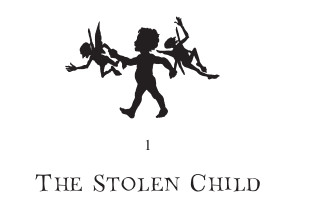
W.B. Yeats
Where dips the rocky highland
Of Sleuth Wood in the lake,
There lies a leafy island
Where flapping herons wake
The drowsy water-rats.
There we’ve hid our fairy vats
Full of berries,
And of reddest stolen cherries.
Come away, O, human child!
To the woods and waters wild
With a fairy hand in hand,
For the world’s more full of weeping than
you can understand.
Where the wave of moonlight glosses
The dim grey sands with light,
Far off by farthest Rosses
We foot it all the night,
Weaving olden dances,
Mingling hands, and mingling glances,
Till the moon has taken flight;
To and fro we leap,
And chase the frothy bubbles,
While the world is full of troubles.
And is anxious in its sleep.
Come away! O, human child!
To the woods and waters wild,
With a fairy hand in hand,
For the world’s more full of weeping than
you can understand.

Where the wandering water gushes
From the hills above Glen-Car,
In pools among the rushes,
That scarce could bathe a star,
We seek for slumbering trout,
And whispering in their ears;
We give them evil dreams,
Leaning softly out
From ferns that drop their tears
Of dew on the young streams.
Come! O, human child!
To the woods and waters wild,
With a fairy hand in hand,
For the world’s more full of weeping than
you can understand.
Away with us, he’s going,
The solemn-eyed;
He’ll hear no more the lowing
Of the calves on the warm hill-side.
Or the kettle on the hob
Sing peace into his breast;
Or see the brown mice bob
Round and round the oatmeal chest.
For he comes, the human child,
To the woods and waters wild,
With a fairy hand in hand,
For the world’s more full of weeping than
he can understand.

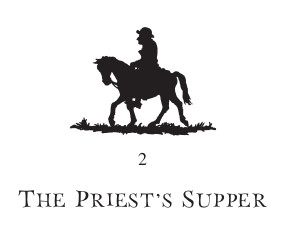
It is said by those who ought to understand such things, that the good people, or the fairies, are some of the angels who were turned out of heaven, and who landed on their feet in this world, while the rest of their companions, who had more sin to sink them, went down farther to a worse place. Be this as it may, there was a merry troop of the fairies, dancing and playing all manner of wild pranks, on a bright moonlight evening towards the end of September.
The scene of their merriment was not far distant from Inchegeela, in the west of the county Cork – a poor village, although it had a barrack for soldiers; but great mountains and barren rocks, like those round about it, are enough to strike poverty into any place: however as the fairies can have everything they want for wishing, poverty does not trouble them much, and all their care is to seek out unfrequented nooks and places where it is not likely anyone will come to spoil their sport.
On a nice green sod by the river’s side were the little fellows dancing in a ring as gaily as may be, with their red caps wagging about at every bound in the moonshine, and so light were these bounds that the lobs of dew, although they trembled under their feet, were not disturbed by their capering. Thus did they carry on their gambols, spinning round and round, and twirling and bobbing and diving, and going through all manner of figures, until one of them chirped out,
“Cease, cease, with your drumming,
Here’s an end to our mumming;
By my smell
I can tell
A priest this way is coming!”
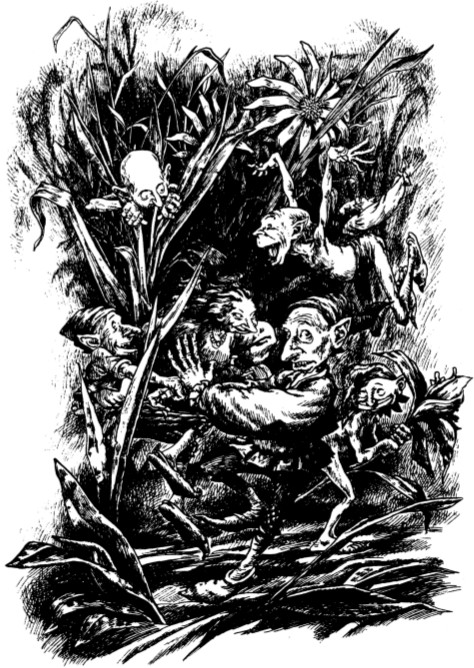
And away every one of the fairies scampered off as hard as they could, concealing themselves under the green leaves of the foxglove; where, if their little red caps should happen to peep out, they would only look like its crimson bells; and more hid themselves at the shady side of stones and brambles, and others under the bank of the river, and in holes and crannies of one kind or another.
The fairy speaker was not mistaken; for along the road, which was within view of the river, came Father Horrigan on his pony, thinking to himself that as it was so late he would make an end of his journey at the first cabin he came to. According to his determination, he stopped at the dwelling of Dermod Leary, lifted the latch, and entered with “My blessing on all here”.
I need not say that Father Horrigan was a welcome guest wherever he went, for no man was more pious or better beloved in the country. Now it was a great trouble to Dermod that he had nothing to offer his reverence for supper as a relish to the potatoes, which “the old woman”, for so Dermod called his wife, though she was not much past twenty, had down boiling in a pot over the fire; he thought of the net which he had set in the river, but as it had been there only a short time, the chances were against his finding a fish in it. “No matter,” thought Dermod, “there can be no harm in stepping down to try; and maybe, as I want fish for the priest’s supper, that one will be there before me.”
Down to the river-side went Dermod, and he found in the net as fine a salmon as ever jumped in the bright waters of “the spreading Lee”; but as he was going to take it out, the net was pulled from him, he could not tell how or by whom, and away got the salmon, and went swimming along with the current as gaily as if nothing had happened.
Dermod looked sorrowfully at the wake which the fish had left upon the water, shining like a line of silver in the moonlight, and then, with an angry motion of his right hand, and a stamp of his foot, gave vent to his feelings by muttering, “May bitter bad luck attend you night and day for a blackguard schemer of a salmon, wherever you go! You ought to be ashamed of yourself, if there’s any shame in you, to give me the slip after this fashion! And I’m clear in my own mind you’ll come to no good, for some kind of evil thing or other helped you – did I not feel it pull the net against me as strong as the devil himself?”
“That’s not true for you,” said one of the little fairies who had scampered off at the approach of the priest, coming up to Dermod Leary with a whole throng of companions at his heels; “there was only a dozen and a half of us pulling against you.”
Dermod gazed on the tiny speaker with wonder, who continued, “Make yourself noways uneasy about the priest’s supper; for if you will go back and ask him one question from us, there will be as fine a supper as ever was put on a table spread out before him in less than no time.”
“I’ll have nothing at all to do with you,” replied Dermod in a tone of determination; and after a pause he added, “I’m much obliged to you for your offer, sir, but I know better than to sell myself to you, or the like of you, for a supper; and more than that, I know Father Horrigan has more regard for my soul than to wish me to pledge it for ever, out of regard to anything you could put before him – so there’s an end of the matter.”
The little speaker, with a pertinacity not to be repulsed by Dermod’s manner, continued, “Will you ask the priest one civil question for us?”
Dermod considered for some time, and he was right in doing so, but he thought that no one could come to harm out of asking a civil question. “I see no objection to do that same, gentlemen,” said Dermod; “but I will have nothing in life to do with your supper – mind that.”
“Then,” said the little speaking fairy, whilst the rest came crowding after him from all parts, “go and ask Father Horrigan to tell us whether our souls will be saved at the last day, like the souls of good Christians; and if you wish us well, bring back word what he says without delay.”
Away went Dermod to his cabin, where he found the potatoes thrown out on the table, and his good woman handing the biggest of them all, a beautiful laughing red apple, smoking like a hard-ridden horse on a frosty night, over to Father Horrigan.
“Please your reverence,” said Dermod, after some hesitation, “may I make bold to ask your honour one question?”
“What may that be?” said Father Horrigan.
“Why, then, begging your reverence’s pardon for my freedom, it is, if the souls of the good people are to be saved at the last day?”
“Who bid you ask me that question, Leary?” said the priest, fixing his eyes upon him very sternly, which Dermod could not stand before at all.
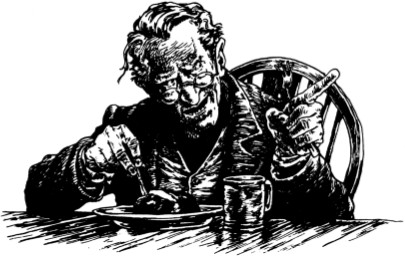
“I’ll tell no lies about the matter, and nothing in life but the truth,” said Dermod. “It was the good people themselves who sent me to ask the question, and there they are in thousands down on the bank of the river, waiting for me to go back with the answer.”
“Go back by all means,” said the priest, “and tell them, if they want to know, to come here to me themselves, and I’ll answer that or any other question they are pleased to ask with the greatest pleasure in life.”
Dermod accordingly returned to the fairies, who came swarming round about him to hear what the priest had said in reply; and Dermod spoke out among them like a bold man as he was: but when they heard that they must go to the priest, away they fled, some here and more there, and some this way and more that, whisking by poor Dermod so fast and in such numbers that he was quite bewildered.
When he came to himself, which was not for a long time, back he went to his cabin, and ate his dry potatoes along with Father Horrigan, who made quite light of the thing; but Dermod could not help thinking it a mighty hard case that his reverence, whose words had the power to banish the fairies at such a rate, should have no sort of relish to his supper, and that the fine salmon he had in the net should have been got away from him in such a manner.
Конец ознакомительного фрагмента.
Текст предоставлен ООО «ЛитРес».
Прочитайте эту книгу целиком, купив полную легальную версию на ЛитРес.
Безопасно оплатить книгу можно банковской картой Visa, MasterCard, Maestro, со счета мобильного телефона, с платежного терминала, в салоне МТС или Связной, через PayPal, WebMoney, Яндекс.Деньги, QIWI Кошелек, бонусными картами или другим удобным Вам способом.

